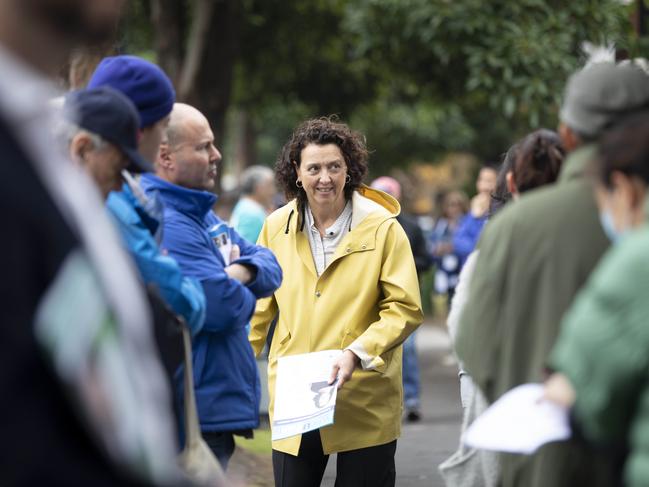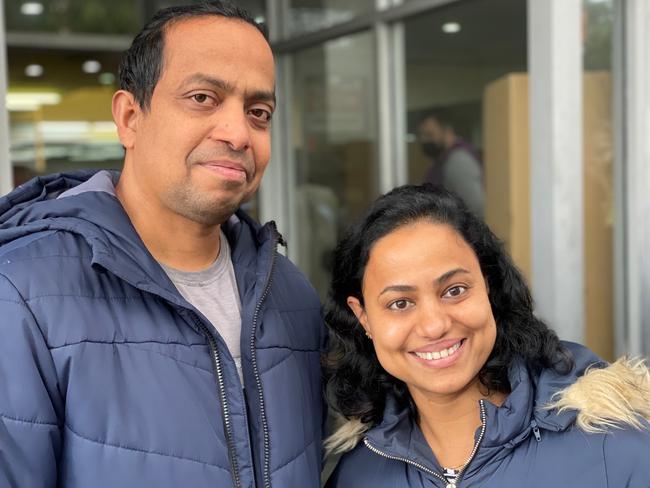Federal Election 2022: Electorates with highest pre-polling rates
See the top seats where millions of Australian voters have already cast their vote. Check your own electorate with our interactive map.
Federal Election
Don't miss out on the headlines from Federal Election. Followed categories will be added to My News.
More than a quarter of enrolled Australians have already cast their ballot for the May 21 election, with 4.6 million votes received at end of play yesterday.
This is up 13 per cent on the figure two days out from the 2019 election, according to data from the Australian Electoral Commission – despite this year’s pre-poll period being one week shorter than last.
If trends continue, about a third of eligible voters will have already voted before booths even open tomorrow.
The Queensland seat of Hinkler is leading the pre-polling charge, with two in five voters (41 per cent) having already turned out for the seat, which is held by the LNP’s Keith Pitt and takes in Bundaberg and Hervey Bay.
Early voting has also been the democracy vehicle of choice for 39 per centof voters in the seat of Fowler (NSW), where Labor’s Kristina Keneally is expected to prevail.
This seat has been in heavy focus for political pundits in the last week following strong polling for local deputy mayor, Dai Le.
It is followed by Gilmore in southern New South Wales, where 38 per centof its voters have cast an early ballot.

Gilmore was heavily impacted by bushfires in 2020 and straddles a Labor-Liberal divide of rural and urban seats.
Victoria’s most popular pre-poller has been the division of Gippsland, with 38per cent of voters having already turned out.
Other state and territory frontrunners are Mayo in South Australia with 25 per cent, Braddon inTasmania with 19 per cent, Solomon in The Northern Territory with 36 per cent, Canning in Western Australia with 33 per cent and Fenner in the ACT with 32 per cent.
A News Corp survey of 7000 pre-poll voters found despite the government and the Labor Party being engaged in a seat-by-seat battle for votes, minor parties are likely to have a greater influence at this poll than in previous elections.
AEC enrolment data also reveals the voting pool is significantly larger than three years ago.
In 2022, there are 17,228,900 eligible Australians enrolled to vote, versus 16,424,248 in 2019 – an increase of 804,652 voters.

Long lines and a feeling of ‘getting it over and done with’ has coincided with a statement from the AEC predicting staff shortages will affect regional Queensland, South Australia and Western Australian voting centres.
Unless they can hire more workers, some polling places may be unable to open on election day in the divisions of Capricornia, Flynn, Kennedy and Leichhardt in QLD, Barker and Grey in SA, and Durack and O’Connor in WA.
“Recruitment difficulty is exactly what we advised could occur, both earlier in the pandemic and in the early stages of the election period, and why we’ve been urging people to assess all voting options,” electoral commissioner Tom Rogers said.
“For some people it may mean that if you want to vote at a polling place in your town on election day, you may have to sign up to work as well.”
More Coverage
Originally published as Federal Election 2022: Electorates with highest pre-polling rates




